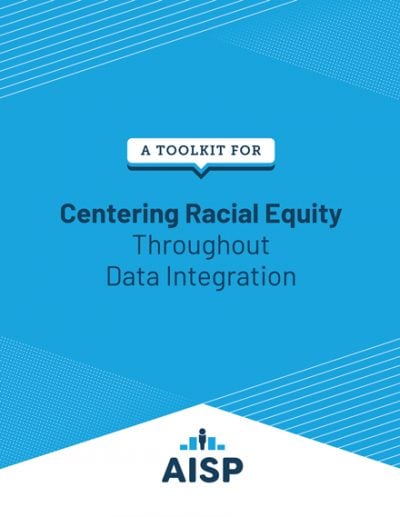Terminology Check
Racial equity is the condition where one’s racial identity no longer influences how one fares in society.

Data sharing and integration commonly drives decision making across government entities. Done well, this work can elucidate needs; improve services and systems; fuel innovative policies and interventions; and — ultimately — build stronger communities.
At the same time, when data infrastructure disregards the larger historical, social and political context, it can reinforce legacies of racist policies; spur inequitable resource allocation; and — ultimately — harm communities.
This tool kit, developed by a national workgroup of civic data stakeholders, aims to support data sharing and integration done well. It encourages centering racial equity and community voice within the context of data integration and use — and for the benefit of the public good.
Packed with strategies, stories, resources and activities, the tool kit aids organizations in deliberately applying a race equity lens when using, disseminating and integrating administrative data for civic purposes. It also runs readers through the six phases of the data life cycle, highlighting both positive and problematic practices as well as real-world examples of work taking place at each stage.
We hope you'll find value in this report. We’d love to get a little information from you, which we'll use to notify you about relevant new resources.